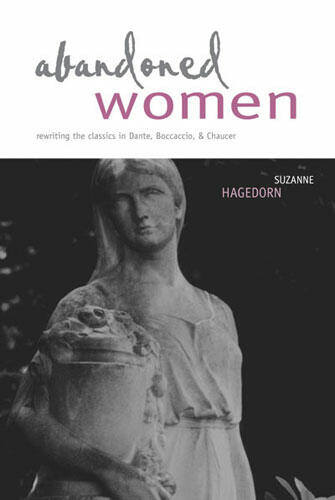Abandoned Women
Rewriting the Classics in Dante, Boccaccio, and Chaucer
Sheds light on the complex web of allusions that link medieval authors to their literary predecessors
Description
Medievalists have long been interested in the "abandoned woman," a figure historically used to examine the value of traditional male heroism. Moving beyond previous studies which have focused primarily on Virgil's Dido, Suzanne Hagedorn focuses on the vernacular works of Dante, Bocaccio, and Chaucer, arguing that revisiting the classical tradition of the abandoned woman enables one to reconsider ancient epics and myths from a female perspective and question assumptions about gender roles in medieval literature.
Suzanne Hagedorn is Associate Professor of English at the College of William and Mary.
Reviews
"[A] bold and compelling exercise in close reading and comparative analysis. . . . Clear, thoughtful, and theoretically astute, this will be a valuable addition to collections in medieval English, Italian, and comparative literatures."
- S. Botterill, Univ of California, Berkeley
—Choice
"Suzanne Hagedorn's book on abandoned women enters a critical conversation that already possesses a strong and determinant shape."
- Robert R. Edwards, Penn State
—Modern Philology
"Hagedorn's writing is crisp and engaging throughout, her close readings consistently sensitive. This is a book—like those of Hagedorn's acknowledged critical influences, Winthrop Wetherbee and John Fleming—that unabashedly treats literary negotiations as the product of a dialogue of governing intelligences...Those who are skeptical of this critical approach are not likely to be converted by this fine book (nor, I think, is that its intent) but will nonetheless find within its pages a lucid, sometimes dazzling reanimation of medieval writers' literary responses to a classical topos that emerges as a capacious, elastic measure of the problematics of literary influence."
- Jamie C. Fumo, McGill University
—Jamie C. Fumo, Speculum

